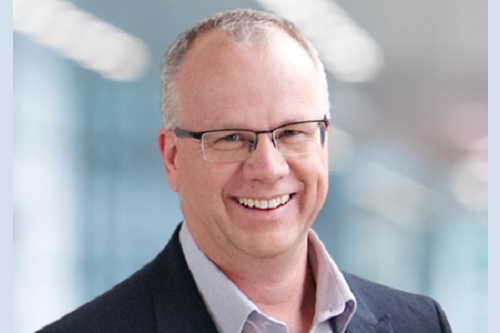How one life-altering experience caused an advisor to realize what clients truly need to strive for

Even as he was undergoing university and post-secondary education, Brad Smith had a passion for financial planning. From budgeting to investment, he said he enjoyed all aspects of the process — so much so that a professor encouraged him to pursue it as a career.
“After I completed my post-secondary education in 1991, I started in the banking industry and stayed there for seven years,” said Smith, who’s the senior wealth advisor at Advice First Financial in Kitchener, Ontario. “From there I joined IPC to become an independent financial planner, and I’ve never looked back.”
Over that time, he always saw protecting his clients’ wealth as his primary role. That all changed after an incident with one of his very first clients as an independent advisor.
“Henry was a factory worker, and he had done everything right,” he said. “He’d put his kids through school; by the time he retired, he was financially set to achieve everything we’d planned for. He couldn’t wait to leave the factory behind.”
No one could have imagined what would happen next: not long after his retirement, the man who’d done everything right tried to take his life. After finding out what happened from Henry’s wife, Smith visited him at the hospital and asked what drove him to it.
“Henry said ‘Nobody needs me. Nobody at work needs me, my kids don’t need me,’” he recalled. “’I went to my doctor because I was losing sleep, and he just gave me pills. I took them home, asked myself what it all meant, and downed all of them.’”
Genuinely concerned, Smith and a few of Henry’s loved ones brainstormed to help him find a purpose; he was passionate about hockey, so he decided to coach minor-league hockey teams and ultimately got out of his funk.
The whole affair marked a turning point for Smith. “I realized that if I succeed only in taking care of my client’s money — making sure it’s used well and ensuring a good return on investment — I have failed as an advisor,” he said. “I didn’t want another Henry.”
Over time, Smith found a similar pattern with other clients; many who were financially prepared for retirement were actually unprepared in emotional or psychological ways. That prompted them to develop a seven-step program to help clients lead lives of success and significance, a major part of which is to give generously to the benefit of others.
“We’ve found that giving — not just trying to earn more or get more or build more — is very important,” he said. “It’s not about what you keep, but what you give away. So that’s why we really started to infuse charitable giving into our process.”
Smith and his team guide all their clients, regardless of life stage, through the process; the idea of giving is introduced in the fifth step. Drawing on his experience with Henry, he made sure clients aren’t limited to sharing their treasures, but also should be guided to help others with their time and talents.
“A client of mine started and grew an agriculture business over three decades,” he said. “One day, he was told that there were plans for expansion, and they didn’t involve him. Just like that, he was retired; financially, he was ok, but he didn’t know what to do. Today, he’s found a new purpose for his knowledge and skills by retraining farmers in Africa.”
As for Smith, he gets invitations to speak as an expert on building charitable giving into advisory practices. One important point, he stressed, is to give clients time to adopt the habit. Not many people are hardwired to give or to even consider it, and it often takes small steps — convincing them to give gift cards or small tokens — before they can consider charitable giving as part of their wealth management or estate plans.
And even when faced with math to show that their fortunes massively exceed their needs, clients can hesitate. The major stumbling block: misgivings about how other people would react, particularly those in the family.
“One client wanted to give money to a charity, but thought her adult children would resent her for giving away their inheritance. So I suggested that we test it out,” he said. The client agreed to call one son at work right then and ask what he thought. “There was a long silence, and then he said it was a great idea and he thought she should do it.”
Aside from guiding clients toward lives of significance, Smith and his team are committed to timeless principles such as accountability and integrity. They navigate with a long-term vision in mind for their practice — but that doesn’t mean they take market changes for granted.
“I always keep in mind that old saying: ‘change is slow until it isn’t,’” he said. “It seems miles away for the longest time, and then arrives in a blink. When regulatory changes come, we’re inclined to embrace and turn them into positive client experiences, and that’s a lot easier to do with our process and deep relationships.”


